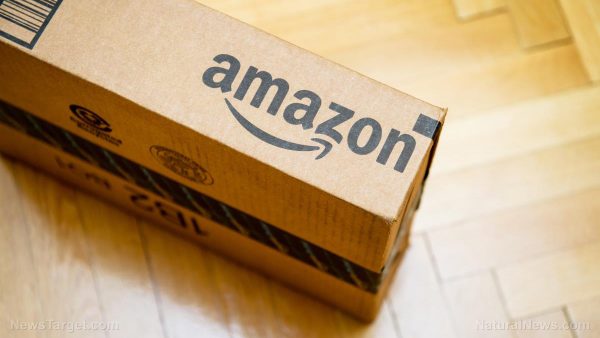BEZOS GOES FULL PHARMA: Amazon teaming up with Big Pharma to sell toxic prescription drugs
05/23/2017 / By Tracey Watson

All indications point to Amazon.com expanding its business to include the sale of prescription pharmaceuticals in the near future, and it’s hardly surprising that they would want to move in that direction. After all, the sale of pharmaceuticals is big business.
In 2016, worldwide drug sales reached an all-time high of 967 billion U.S. dollars; sales in the United States alone accounted for almost half of that figure, at $446 billion. And Amazon has been considering how it can get a piece of that pie for some time now. [RELATED: Read about how Big Pharma has been scheming to hike the prices of generic drugs.]
Back in the 1990s, Amazon purchased an online store called Drugstore.com hoping to grab a chunk of the drug sale market. Although that attempt failed, with Drugstore.com later being sold to Walgreens and eventually being shut down altogether, Amazon has continued to discuss the prescription drug possibility at least once a year at its Seattle head office. The company has now taken it a step further by hiring a new general manager to set up a team and develop a strategy for navigating the online prescription drug business.
Although Amazon has not officially committed to moving into this lucrative sector of the market, it is also rumored that the company is in discussions with industry leaders and has been hiring staff members from within the pharmaceutical sphere, including Mark Lyons from the health insurer Premera Blue Cross.
Interestingly, in the past Amazon has been known to test its products offshore before launching them in the United States, and Japan Times reported recently that the company is now offering a same-day delivery service of medications, including category 1 drugs which must be dispensed by a pharmacist. Customers are required to report their symptoms and medical history in an online form, and then after being approved by the pharmacist, the order is processed and delivered to the client.

Stephen Buck, co-founder of GoodRx, a company that aims to reduce prescription prices for its clients, estimates that the lucrative pharmaceutical sector could add as much as $25 to $50 billion in sales for Amazon.
There will be hurdles though. “Prescription transfer laws and e-prescribing make it a little more difficult than putting something in a cart and checking out,” Buck pointed out.
And, of course, other concerns immediately become apparent. The model the company has introduced in Japan, for example, is full of holes and does not sound at all full proof. Relying on clients to accurately convey their symptoms and medical histories is very risky. Patients may not supply all the necessary information to make an accurate diagnosis, and what about drug addicts having access to prescription medications in such an easy manner?
Other potential issues were highlighted in an article by Mike Adams, the founder/editor of Natural News, back in 2013. While making a purchase on Amazon, Adams noticed a deceptive pharmaceutical ad on the site which claimed: “ONE PILL EACH MORNING. 24 HOURS. ZERO HEARTBURN” in reference to the over-the-counter heartburn medication Prilosec.
First of all, as Adams noted, the manufacturer could not guarantee “zero heartburn,” and in fact had a tiny disclaimer to that effect somewhere on the page. And secondly, and perhaps most importantly, the phrase “one pill each morning” makes it sound like this medication can safely be taken on a daily and ongoing basis, just like a vitamin.
Nothing could be further from the truth. In fact, these medications are not recommended for long-term use and carry multiple side effects. And what many people don’t realize is that though they may no longer feel the symptoms of heartburn after taking Prilosec, the problem is still there, and left untreated, can lead to a serious condition called Barrett’s Esophagus, which in turn can eventually result in esophageal cancer.
It is highly unlikely that Amazon will warn people about the dangers and concerns surrounding pharmaceutical medications, and that could lead to serious consequences. But then, with so much money to be made, that’s the least of Amazon’s concerns.
Sources include:
Submit a correction >>
Tagged Under:
Amazon.com, Big Pharma, online sales, prescription medication
This article may contain statements that reflect the opinion of the author





















